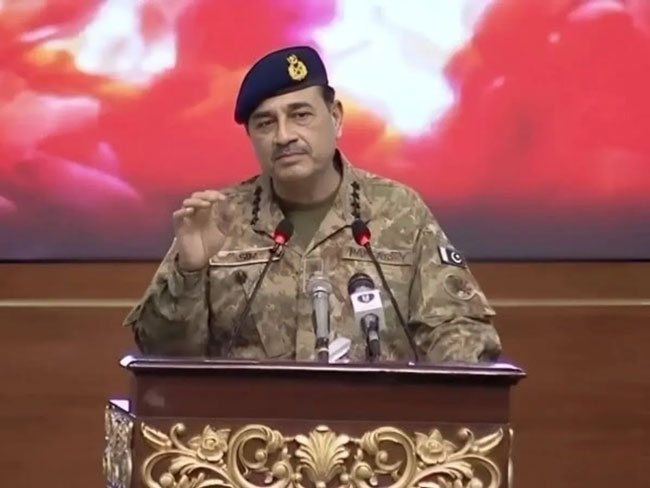Recently, Pakistan’s Chief of Army Staff, General Asim Munir, reignited controversy by invoking the Two-Nation Theory in a sharply worded statement that portrayed Hindus and Muslims as fundamentally different peoples. Following his remarks, a terrorist attack occurred in Pahalgam, Jammu and Kashmir, which many directly linked to the heightened tensions stemming from Munir’s rhetoric.
Renowned Pakistani-origin academic, Professor Ishtiaq Ahmed, openly criticized General Munir for both the divisive statement and its fallout. He went a step further, bringing to light a painful irony from Pakistan’s own history — the neglect and disregard shown towards Chaudhry Rahmat Ali, the man who originally coined the name Pakistan.
Chaudhry Rahmat Ali: The Forgotten Father of Pakistan’s Name
Professor Ishtiaq Ahmed recounted that the word “Pakistan” was first conceived by Chaudhry Rahmat Ali, a native of Hoshiarpur district in Indian Punjab and a member of the Gurjar community. Despite his efforts, Rahmat Ali was unable to complete his law degree (LLB).
In 1934, Rahmat Ali published a pamphlet titled “Now or Never,” where he introduced the name PAKISTAN. In this vision:
- P stood for Punjab,
- A for Afghania (now Khyber Pakhtunkhwa),
- K for Kashmir,
- and ISTAN represented Sindh and Balochistan.
However, despite his pivotal contribution, Rahmat Ali never received due credit. Over time, the narrative was re-centered around Allama Iqbal and Muhammad Ali Jinnah, overshadowing Rahmat Ali’s foundational role.
Historical Context of the Two-Nation Theory
Ishtiaq Ahmed emphasized that while tensions between Hindus and Muslims grew after the 1857 uprising, no major organization or collective movement initially demanded the division of India.
He pointed out that although Allama Iqbal’s famous Allahabad address is often cited as the birth of the Pakistan idea, even at that time, there was minimal support among Muslims. It is claimed that Muslim businessmen were coerced into attending and voting at the session to give the appearance of consensus.
How Jinnah Used Rahmat Ali’s Vision
According to Professor Ahmed, Muhammad Ali Jinnah extensively utilized Rahmat Ali’s ideas from 1940 to 1947 to further the Pakistan movement but never acknowledged Rahmat Ali’s original contribution.
Tragically, when Rahmat Ali tried to settle in Pakistan after its creation, he was denied residence. Disillusioned, he returned to Cambridge, where he died on February 3, 1951. His family wished for his remains to be repatriated and buried in Pakistan, but the government refused permission. Even in 2017, a legal petition was filed in London to bring his remains to Pakistan, but it led to no result.
Pakistan’s Broken Inheritance
Professor Ahmed further observed that the Pakistan envisioned by Rahmat Ali did not materialize as intended. A large portion of Muslims remained in India, and many regions like Punjab were reluctant about Partition. The majority of the Muslim community was, in fact, against the division.
Thus, Pakistan continues to bear the burden of a fractured historical legacy, where even its original architects are marginalized and forgotten.
General Asim Munir’s recent invocation of the Two-Nation Theory has not only widened historical divides but also exposed Pakistan’s unresolved contradictions with its past. Chaudhry Rahmat Ali, the visionary who once dreamed of Pakistan, remains an unsung hero — a man celebrated in spirit but denied honor in reality.




